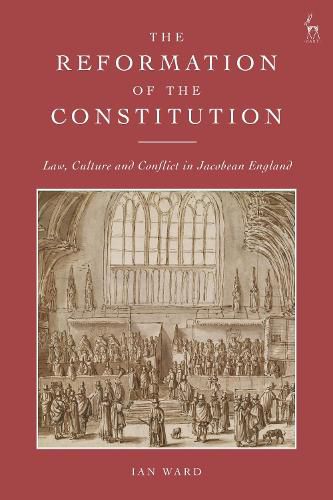Readings Newsletter
Become a Readings Member to make your shopping experience even easier.
Sign in or sign up for free!
You’re not far away from qualifying for FREE standard shipping within Australia
You’ve qualified for FREE standard shipping within Australia
The cart is loading…






This book revisits one of the defining judicial engagements in English legal history.
It provides a fresh account of the years 1606 to 1616 which witnessed a series of increasingly volatile confrontations between, on the one side, King James I and his Attorney-General, Sir Francis Bacon, and on the other, Sir Edward Coke, successively Chief Justice of Common Pleas and Lord Chief Justice.
At the heart of the dispute were differing opinions regarding the nature of kingship and the reach of prerogative in reformation England. Appreciating the longer context, in the summer of 1616 King James appealed for a reformation of law and constitution to complement the reformation of his Church.
Later historians would discern in these debates the seeding of a century of revolution, followed by another four centuries of reform. This book ventures the further thought that the arguments which echoed around Westminster Hall in the first years of the seventeenth century have lost little of their resonance half a millennium on. Breaks with Rome are little easier to 'get done', the margins of executive governance little easier to draw.
$9.00 standard shipping within Australia
FREE standard shipping within Australia for orders over $100.00
Express & International shipping calculated at checkout
This book revisits one of the defining judicial engagements in English legal history.
It provides a fresh account of the years 1606 to 1616 which witnessed a series of increasingly volatile confrontations between, on the one side, King James I and his Attorney-General, Sir Francis Bacon, and on the other, Sir Edward Coke, successively Chief Justice of Common Pleas and Lord Chief Justice.
At the heart of the dispute were differing opinions regarding the nature of kingship and the reach of prerogative in reformation England. Appreciating the longer context, in the summer of 1616 King James appealed for a reformation of law and constitution to complement the reformation of his Church.
Later historians would discern in these debates the seeding of a century of revolution, followed by another four centuries of reform. This book ventures the further thought that the arguments which echoed around Westminster Hall in the first years of the seventeenth century have lost little of their resonance half a millennium on. Breaks with Rome are little easier to 'get done', the margins of executive governance little easier to draw.